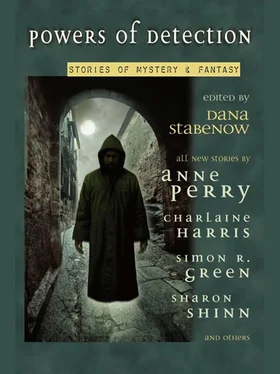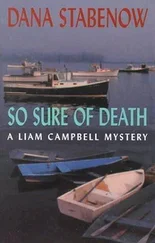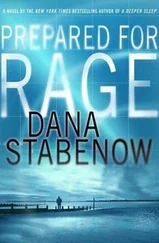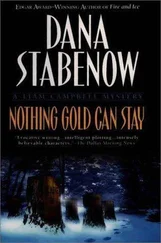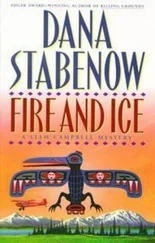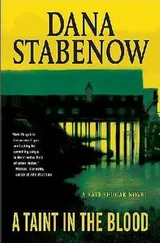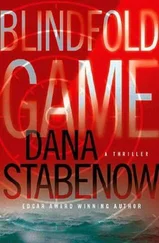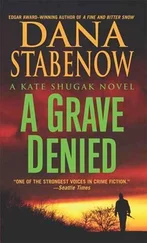I had a couple of contacts in the Khan. One was back in the narrow winding streets that sold antiquities, real and fake, but my main guy, Ismail, plied his trade up in the street of coppersmiths. Keeping one eye open for pickpockets, I headed in that direction, pushing past the streams of native Egyptians and tourists both. I was looking out for familiar faces, too-signposts to the subtle trade that might be going on around me, beneath the veneer of market commerce. I’d learned the faces, the ones that mattered, but on that evening, most of them were strangely absent.
I stopped in front of Ismail’s tiny store, peering inside at the shelves of burnished copper, the piles of pots and jugs stacked haphazardly in the front. There was no sign of him. But then, as if he sensed my presence, a stained curtain twitched in the back, and a familiar pockmarked face peered out.
“Zhaik, Zhaik, it is you, my friend. You come to see me.”
I glanced up and down the street, then grinned. “Ismail, you old crook. How are you?”
A big yellow grin greeted my statement. “Allah willing, I am well, Zhaik.”
“And business?”
Ismail rocked his head from side to side. “Ah, you know.” He came to the front of the store and peered round the corner. He glanced across at the stall across the street with narrowed eyes, tossing his chin at the stallholder opposite. The man gave a quick nod, and after a quick glance up and down the street, Ismail beckoned me inside.
Behind the stained curtain sat a simple table and a couple of chairs. A dirty stove sat with a pot of tea upon it. Ismail pulled down a couple of tea glasses, wiping them with the hem of his robe as he gestured to one of the seats. He planted the glasses down, pushed a bowl of white sugar lumps into the center, and reached up to turn on a radio that sat atop a battered fridge in the corner. Satisfied, he poured two glasses of tea and sat, pulling his off-white galabiya around himself.
“So, Zhaik,” he said, suddenly all business, peering across at me with yellowing, watery eyes.
“I’ve got a new case,” I told him. I dug into my pocket and drew out the photograph, slipping it across the table so he could see it. Ismail picked it up and peered down, his eyes narrowing. He shook his head.
“You’re sure?”
He slid the photograph back. “Yes. I am sure. Aiwa. ”
I slipped the picture away again. “Well, his wife says he’s gone missing.”
Ismail shrugged, as if this was no news, something that happened every day, and he was right.
I leaned forward. “No, there’s something about this one,” I told him. “You should see the wife. We find him, and I think it’s going to be worth the effort.” I rubbed my thumb and first two fingers together in front of his face.
Ismail looked up at me, his eyes narrowed, then he grinned. “Is good, Zhaik.”
“Yes, is good,” I said. “Anyway, they’re loaded, but she wants to keep it quiet. She said something really weird though. She said her brother-in-law had killed him before, and she thought he might have done it again.”
Ismail’s grin suddenly faded and his eyes widened. “What is this woman, Zhaik?”
I frowned. “Madame Fouad. That’s her name. I didn’t get a first name. Her husband’s name-the guy in the picture-his name’s Ossie.”
Ismail gave a slight shake of his head.
“Anyway, it’s all to do with the brother, or so she says. It’s all to do with the company, Ra Industries. The brother’s name is Seth.”
Ismail suddenly sucked air through his teeth and shook his head. “I cannot help you, Zhaik.”
“Come on, Ismail.”
He leaned forward, close enough that I could smell his breath, his body. “Is bad business, Zhaik. You walk away, yes.”
“What are you saying?” I said, leaning back.
He shook his head again. “You go now, Zhaik. You go now.”
I was about to protest, but Ismail sliced the air with his hand. I didn’t understand, but Ismail had been useful to me in the past, and I didn’t want to upset the relationship. Whatever I’d said had struck a nerve in places he didn’t want me to be. Sometimes their damned superstitions went a little too far. I wondered what it was this time.
I bid him a quick good bye, and left him there slowly shaking his head, not even bothering to finish my tea.
–
For the next few days I pursued my own inquiries. I hit a wall in every direction. I could find no record of the Fouads or anything to do with Ra Industries. Every way I turned, at the merest mention of those names, the shutters came crashing down. The dusty streets and alleyways of Cairo guard their secrets well, but I’d never seen anything like this. Usually a few Egyptian pounds is enough to loosen lips. Not this time. I was left scratching my head, grinding my teeth with frustration, dreading the call from Madame Fouad, knowing I had nothing to give her.
Two days later the call came. It wasn’t Madame Fouad. It was Ismail.
“Zhaik,” said the breathy voice at the other end of the line. “You must come. I have something for you.”
“What is it, Ismail?” There was something in his voice-no banter, all seriousness.
“You must come, Zhaik.” The line went dead.
I jumped in a cab and headed for the Khan, not even bothering to haggle over the price. Ismail was waiting for me when I got there.
“What have you got?” He looked nervous, jittery. He shook his head, beckoning for me to follow him into the depths of the marketplace. He didn’t even bother checking that someone would look after his store.
Ismail lead the way, pushing past stallholders and browsers alike. I knew the section. One of my other contacts plied his trade from a small antiques store in the very area, but the store Ismail led me to was unfamiliar. Ismail ushered me inside a small shop, cluttered with statuary, tomb fragments, and papyri. He closed the door firmly behind us. A moment later, we were joined by a small, rotund sweaty man, with a full black beard and thick glasses.
“This is Ali,” said Ismail. “This is his shop.”
I nodded.
“Come, come,” said Ali.
He led us into another back room. This one was far cleaner than Ismail’s. On a small table in the room’s center, sat a bundle, wrapped in newspaper and tied up with string. Ali reached across, retrieved a knife, and cut the string; then waved me toward the package. Looking from one to the other, I gingerly reached forward and started unfolding the newspaper. I swallowed and stepped back. What lay revealed was a foot. I reached forward and prodded it with the tip of one finger. It was a foot all right. I peered closer. Neatly manicured nails, slightly dark skin, and a clean cut at the ankle.
“Where did you get this?” I said.
“A local fishermen. It comes from the river three days ago.”
Three days ago? It looked recently removed. Very recently removed.
“What’s happened? Where has it been kept?”
“Ali has had it here. I hear about it. I talk to him. I call you, Zhaik. He has it here maybe two days, I think.”
But that was impossible. Sitting wrapped in newspaper for a couple of days in the Cairo heat, a severed foot wasn’t going to look like that. I reached out and folded the newspaper back over, swallowing back my disbelief.
“At least put the damn thing in a fridge,” I said.
There was nothing to indicate that this was who I was looking for, but somehow, deep inside, I knew it was. I turned away from the table, one hand massaging the back of my neck. One foot did not a body make. This was probably a matter for the Cairo police, but I didn’t want to involve them yet. I turned back to Ismail.
“Get him to keep it here. Ask around. See if anything else has shown up. Until then… I don’t know.”
Читать дальше
